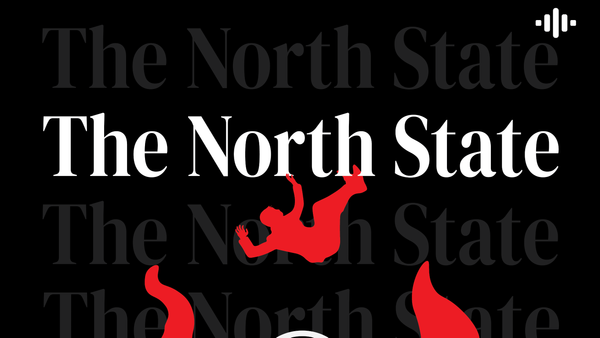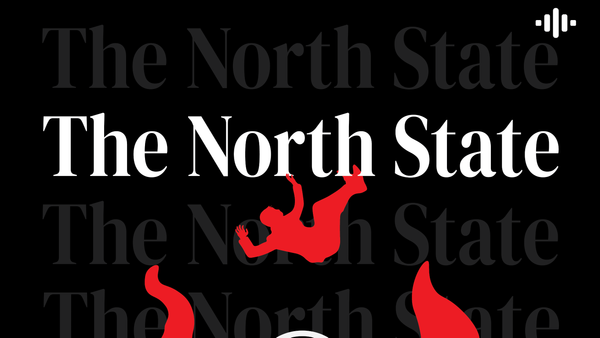Insights On the Corus Bloodbath
Corus' news and radio cuts have been a long time coming, but it doesn't make it easier

Corus Entertainment is not doing so hot. Analysts in the business world, as reported by the Toronto Star, find it likely that the corporation will be able to avoid bankruptcy. Corus currently has a debt of $3 billion, with approximately $300 million due in three years. At this point, few have clues as to how they plan to pay this debt, outside of layoffs. Make no mistake, after Corus released their third quarter results, which saw shareholders lose approximately $760 million, the layoffs were predictable. In fact, 300 more positions will be laid off in August.
On the docket for the latest round was Global Okanagan, Global Peterborough and, most pertinent for this story, Global Kingston. Okanagan and Peterborough, while still facing cuts, didn't face the level of evisceration that Kingston did. Longtime news anchor Bill Hutchins has left, and two Corus radio stations, Big 96.3 FM and Fresh 104.3, laid off all on-air personalities. They will now pre-record on-air bits "to continue to produce local content made for and reflecting Kingston." To be clear, voice tracking (the practice of pre-recording on-air bits) is not uncommon for shifts like evening and overnight. Using it to replace an entire on-air crew, however, is.
There has been some outcry over Corus' decision, especially in Kingston. Liberal MP Mark Gerretsen and Liberal MPP Ted Hsu, both representing the city, co-authored a letter asking nicely that Corus not make layoffs in their financial state. Kingston Mayor Bryan Paterson emphasized a need for a "conversation" about local journalism.
Neither of these statements address the systemic factors leading to these layoffs– namely, that private companies do not produce news to serve the community. Their goal is to make money. In Corus' case, money at any cost to avoid bankruptcy.
Journalism layoffs, once again, reflect the dismal state of the industry. It's something I've written about before, and will (unfortunately) write about again. Corus Kingston's layoffs struck a more personal note with me, though. As someone who left a radio job in Kingston to go into journalism, this hits close to home. I personally knew many of the on-air voice talent that was laid off.
One of the reasons I left radio, among many others, was the direction I saw the industry headed. During my brief time in the field, the radio stations where I worked saw pre-recorded voice talent introduced in even more slots outside the morning and drive shifts, the two biggest. Corporate often made tours to various stations across the country, including ours. One time they encouraged us to send questions so they could address them in person. Needless to say, any questions answered didn't really address actual concerns about funding or any other topics. Seeing other stations in the city, or at the company, face layoffs always kept us on our toes. There's no point in giving any details past this, but the general feeling of impending doom was one that led me to leave the field.
Let's be clear, this is not an "I told you so" moment, nor is it schadenfreude in any way. I know that most of those laid off, at some point, probably saw something similar coming themselves. I had personally worked with some of those laid off, and they had moved jobs during their time in the industry, as well. I was lucky, in some way. When I left, I moved into a serving job. I was young, childless and financially able to jump a job which was many other people's careers for many years. I could move into one that didn't make nearly as much money or offer career advancement.
No, this is not a victory lap. This is just another large and damaging chapter in the downward spiral of local news and radio. I was taught throughout my college program that the utility of radio in an increasingly online landscape was its ability to be hyper-local and instant. Pre-recording your on-air talent, especially if the one providing the voice doesn't live where the station is based, completely obliterates the only value that radio provides. Anyone can listen to any music at any moment at the touch of a button. There are near-infinite podcasts covering comedy, documentary, news or politics accessible to everyone. But when you want to learn about something that happened down the street, what events are coming up, or the latest news in your area, there's nothing better than radio.
Markets and corporations don't see it that way. On-air talent costs money. That money is needed to service debts. If cutting on-air talent in lieu of pre-recorded voices hurts in the long run, that doesn't matter. If cutting local news broadcasts saves money, the same logic applies.
It's doubtful this move or others like it will save Corus. Meanwhile, when news and local radio is dominated by corporations, it takes more than gentle requests to get them to focus on community-oriented content. It takes a systemic overhaul of what our society deems important. Otherwise, it's likely we'll see this same tragic story play out more and more often.
Despite what people may think, radio and local journalism has a lot of potential. It's the executives at the top that don't see it that way.





